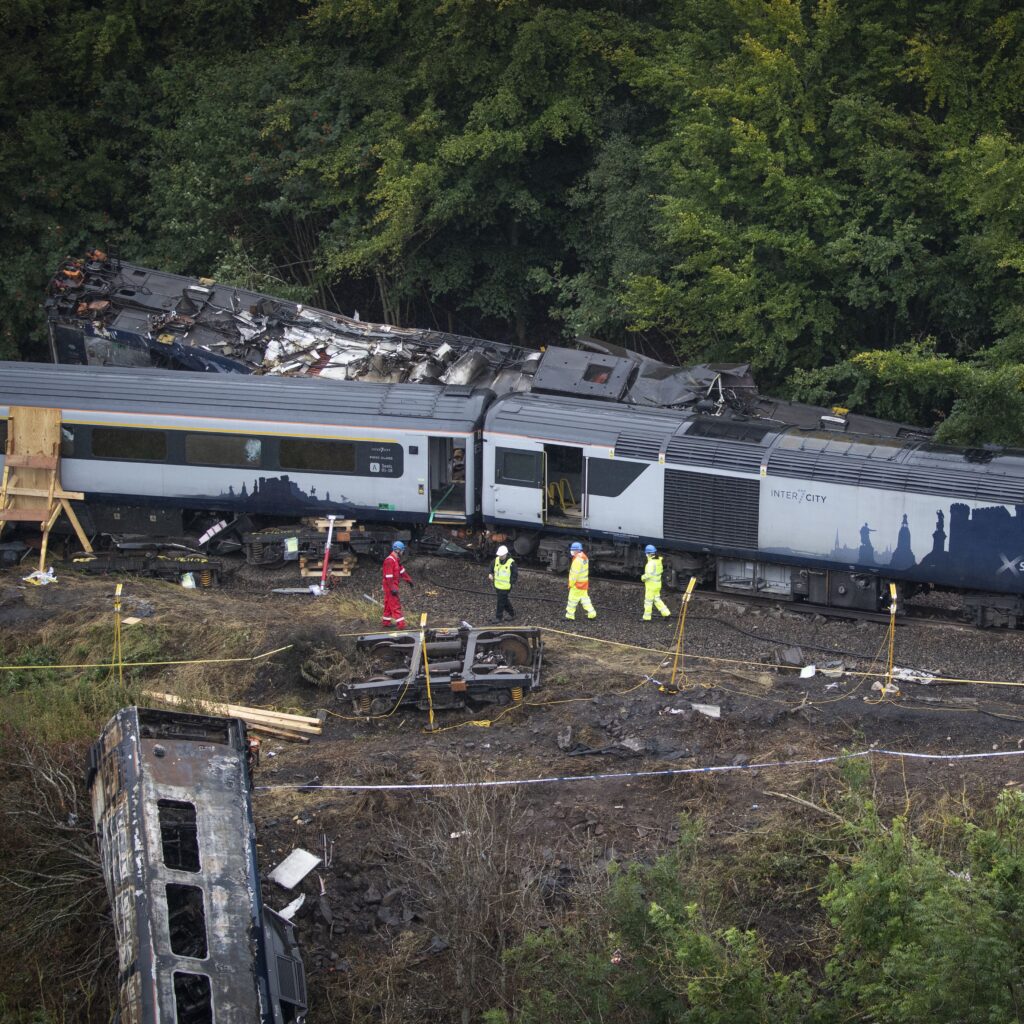
Extreme rainfall events, like the one linked to a deadly train derailment in Aberdeenshire, are expected to become more frequent due to climate change, according to a new study. Researchers suggest that if global temperatures rise by more than two degrees above pre-industrial levels, the probability of such downpours could increase by up to 40%.
The study highlights the growing risk of intense rainfall events similar to the one that occurred near Stonehaven, Aberdeenshire, in August 2020. This incident resulted in the tragic deaths of train driver Brett McCullough, 45, conductor Donald Dinnie, 58, and passenger Christopher Stuchbury, 62, and left six others injured. The derailment happened during a period of torrential rain, leading to a criminal prosecution and a £6.7 million fine for Network Rail due to health and safety failings.
Climate Change and Increased Rainfall
Researchers from the University of Edinburgh and the Met Office conducted an in-depth analysis using weather radar data and climate models. Their findings indicate that the warming climate is likely to increase the intensity, frequency, and distribution of extreme rainfall events. On the morning of the 2020 derailment, a significant burst of rain fell near the crash site, followed by another severe downpour just before the accident on the Aberdeen to Glasgow line.
Professor Simon Tett, chairman in earth system dynamics at the University of Edinburgh, emphasized the broader implications of these findings.
“Climate change is not only increasing the risk of heatwaves but also extreme rainfall. Scotland would be wise to prepare for heavier summer deluges as the climate continues to warm,”
he noted.
Infrastructure Challenges and Historical Context
The Rail Accident Investigation Branch (RAIB) report published in March 2022 identified construction errors in a drainage system installed by Carillion, which could not handle the heavy rainfall on the day of the crash. Carillion, which went into compulsory liquidation in January 2018, left a legacy of infrastructural vulnerabilities that were exposed during the extreme weather event.
Experts warn that more frequent extreme rainfalls will likely increase the risk of flash floods in urban areas and cause significant damage to infrastructure. Previous research has shown that the Earth’s atmosphere and oceans are currently 1 to 1.5 degrees warmer than in the late nineteenth century. A warmer atmosphere can hold more water, leading to more intense rainfall when all that moisture is released.
Implications for the Future
The study, published in the journal Environmental Research Climate, was funded by the University of Edinburgh and the Met Office Hadley Centre Climate Programme, supported by the UK Department of Science, Innovation and Technology (DSIT). It underscores the urgent need for infrastructure adaptation to cope with the anticipated increase in extreme weather events.
A fatal accident inquiry is set to be conducted into the train derailment, reflecting ongoing concerns about rail safety in the context of climate change. Network Rail has stated its commitment to enhancing the resilience of the railway network, having already invested millions to manage the risks posed by severe weather.
As the world grapples with the realities of climate change, the findings of this study serve as a stark reminder of the importance of proactive measures to safeguard infrastructure and communities against the growing threat of extreme weather events.





